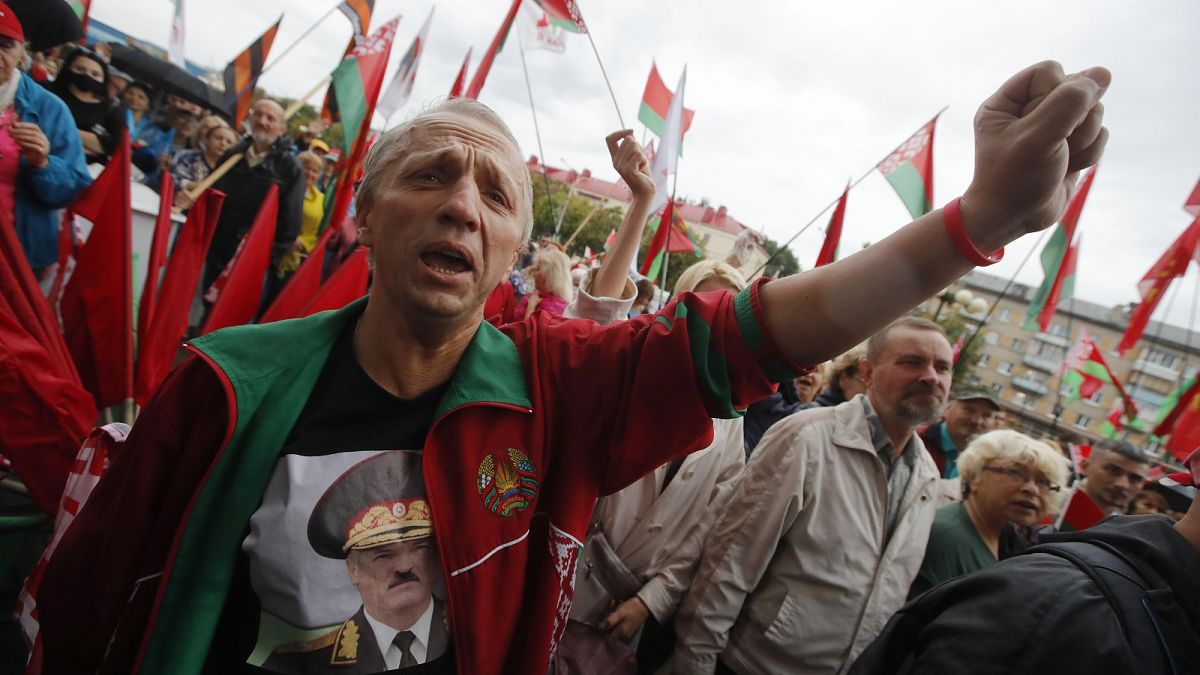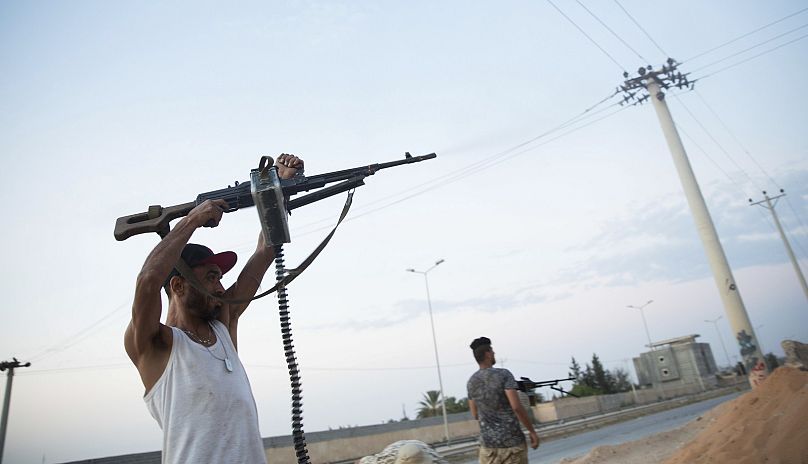The revolution and subsequent civil war in Libya show what happens when a vacuum is left behind after the fall of dictators and the state apparatus that keep them in power.
In recent weeks, there have been growing calls for the EU and the international community to take a firm stand behind the pro-democracy protests and against the Lukashenko regime in Belarus. The EU must exercise extreme caution at this moment and learn the lessons from the last time Europe took a direct hand in an uprising against a long-time dictator: in Libya.
As combatants in the civil war in Libya, with the attendant foreign backers on each side, toy with reaching a ceasefire after nine years of turmoil, the lessons of Libya are pertinent for Belarus.
The NATO-led intervention in Libya was in several crucial ways a European initiative. In this sense, it was led (mostly but not entirely) by European countries, but it was also marked by the divisions it created within Europe. These divisions were between countries that wanted to make a stand for human rights and democracy by aiding the rebels against the Qadhafi regime, and those who feared the unintended consequences of regime change. As it turns out, those worried about unintended consequences were right to be concerned. The decade of violence and instability that Libya has suffered since Qadhafi’s fall is a stark warning of what can go wrong after a dictatorship collapses.
This is not to apologise for the atrocious crimes of Qadhafi’s regime, nor to imply that it would have been better for him to have remained in power. The disaster in Libya was that the EU and the wider international community were blindsided by the sudden fragmentation of the country and the Libyan people into antagonistic factions. This was in large part (though not solely) a function of the dispossession of supporters of the Qadhafi regime, who controlled key parts of the security forces and revenue-generating portions of the state. There is a great and somewhat unrecognised danger of the same thing occurring in Belarus.
Much like the Qadhafi regime in Libya, the Lukashenko regime in Belarus is not just one man. Qadhafi sat at the top of a complicated system of patronage and alliances, which incorporated much of Libya’s population. This system was based around the distribution of oil revenues, participation by favoured groups in the security services and the exclusion of non-favoured groups, and access to state contracts and service provision. These forms of patronage were interwoven with each other and many others to form a web that connected many people at all levels of Libyan society to Qadhafi, whether through loyalty or simply through profiteering.
After Qadhafi’s fall, there was inevitably a great deal of score-settling between individuals and groups, as the victorious revolutionaries and formerly oppressed groups sought to take control of the state, and in some cases, to reap the spoils they had been denied for decades. Qadhafi’s policy of setting different local communities against one another, dividing Libya along communitarian and familial lines (“tribal divisions” as they are sometimes called), meant that there were a great many open wounds in Libyan society after the revolution.
Many of the injustices of his regime were settled through violence during and after the revolution in 2011, leading to a large portion of the Libyan population losing out during the regime change and providing ample reasons for them to back another strongman leader, Khalifa Haftar.
Despite differences in history and culture, there are some significant similarities to Libya in Belarus. Lukashenko has maintained his regime through a complex network of state-owned enterprises, which act as a source of patronage, and through selective recruitment into the upper echelons of the security services. Indeed, the Siloviki - high ranking officials drawn from the state security services like the KGB - hold many of the key positions in Lukashenko’s regime. These former (and current) security heavyweights are distributed not just in government but also in the state-owned companies that are a key part of the state’s revenue (and hence individual profit as well).
This network of Siloviki is invested in the survival of the regime and controls the key security institutions that have taken the lead in repressing the protests. There is a clear parallel with Libya, where the Qadhafi regime was defended by military and security units personally loyal to the dictator (and in one case, led by his own son). Along with the state employees, compliant business leaders, and the families of all those implicated in the regime, there is a large part of Belarussian society that stands to lose out in any overthrow of Lukashenko.
None of this is an argument for supporting Lukashenko any more than it was an argument for backing Qadhafi. What these complicated support structures for the regime argue for is a cautious and balanced approach to Belarus. It is a mistake to see the Lukashenko regime as a single homogeneous block that needs to be overthrown. From the dictator down, there is a complicated network of individuals, their families, friends, and associates who depend on the regime and benefit from it to varying degrees.
This does not imply that the regime cannot or should not be reformed or removed, but that such a process will mean both winners and losers across Belarusian society. As has been seen in Libya, such a process of violent change does not necessarily lead to peace and stability but instead to prolonged fragmentation and violence.
The EU must approach Belarus with a great deal of caution. As with Libya, there is a powerful external actor, Russia, who will seek to impose its own desires on the situation. There are also multiple factions inside the country that will have their own objectives, and in the case of the regime security apparatus, will be willing and able to use violence to achieve them in a post-Lukashenko scenario.
The EU needs to start planning for multiple outcomes in Belarus, and while voicing support for the legitimate desire for democracy and justice on the part of the opposition, the bloc also needs to be prepared for a less positive and more bloody outcome should Lukashenko fall.
- Niall McGlynn studied International Relations and History at Leiden University and Trinity College Dublin. He is currently an independent scholar and policy professional based in Ireland
____________
Are you a recognised expert in your field? At Euronews, we believe all views matter. Contact us at view@euronews.com to send pitches or submissions and be part of the conversation.



